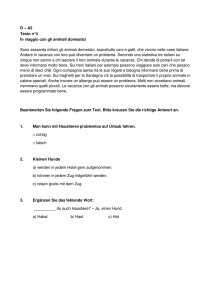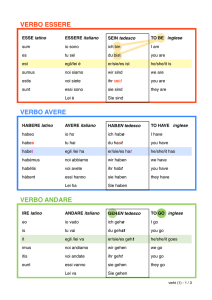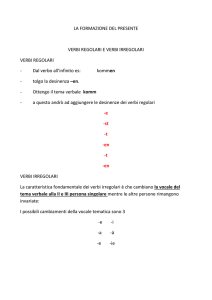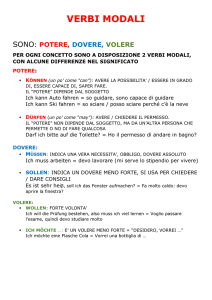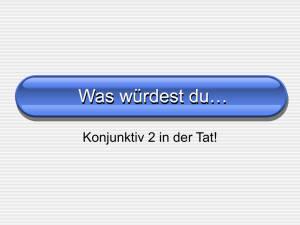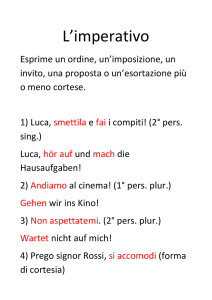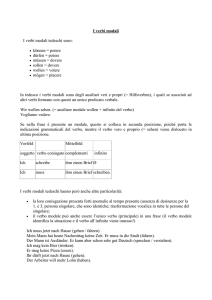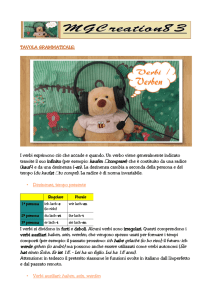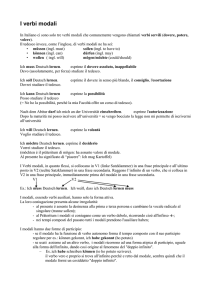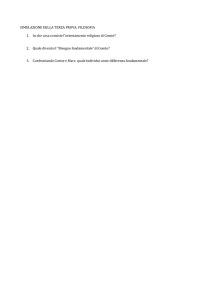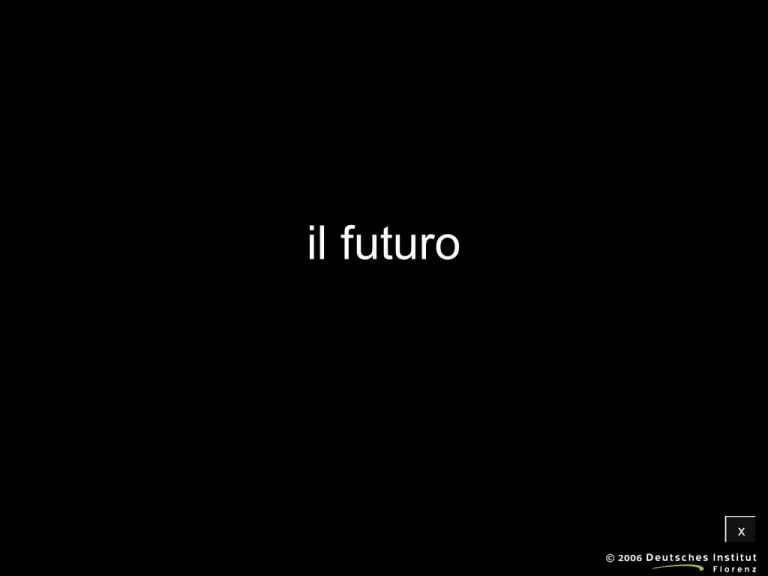
il futuro
x
© 2006
Formazione del futuro
ich
ich werde
du
er sie es
wir
ihr
Sie sie
.....gehen
il futuro si forma con ausiliare werden
+ infinito del verbo
x
© 2006
Formazione del futuro
ich
ich werde
du
du wirst
er sie es
wir
ihr
Sie sie
.....gehen
.....fahren
il futuro si forma con ausiliare werden
+ infinito del verbo
x
© 2006
Formazione del futuro
ich
ich werde
du
du wirst
er sie er
es wird
wir
ihr
Sie sie
.....gehen
.....fahren
.....sein
il futuro si forma con ausiliare werden
+ infinito del verbo
x
© 2006
Formazione del futuro
ich
ich werde
du
du wirst
er sie er
es wird
wir
wir werden
ihr
Sie sie
.....gehen
.....fahren
.....sein
.....essen
il futuro si forma con ausiliare werden
+ infinito del verbo
x
© 2006
Formazione del futuro
ich
ich werde
du
du wirst
er sie er
es wird
wir
wir werden
ihr
ihr werdet
Sie sie
.....gehen
.....fahren
.....sein
.....essen
...verstehen
il futuro si forma con ausiliare werden
+ infinito del verbo
x
© 2006
Formazione del futuro
ich
ich werde
du
du wirst
er sie er
es wird
wir
wir werden
ihr
ihr werdet
Sie siesie werden
.....gehen
.....fahren
.....sein
.....essen
...verstehen
.....arbeiten
il futuro si forma con ausiliare werden
+ infinito del verbo
x
© 2006
• Nella lingua parlata il futuro si esprime
normalmente con il presente, anche
perché di solito all’interno della frase, un
avverbio di tempo provvede già ad
indicare chiaramente il futuro.
• Heute Abend gehe ich ins Kino
x
© 2006
• Questa forma si usa più che altro nella
lingua scritta ed anche qui soltanto per
previsioni di carattere esplicito che fanno
riferimento ad un futuro piuttosto lontano
• In der Zukunft wird es 10
Milliarden Menschen geben
x
© 2006
• Un altro uso (come in italiano) è quello di
presupposizioni incerte tipo "Avrà ca. sui
50 anni, tu cosa pensi?"
• Er wird ungefähr 50 sein
x
© 2006
Ende
x
© 2006


